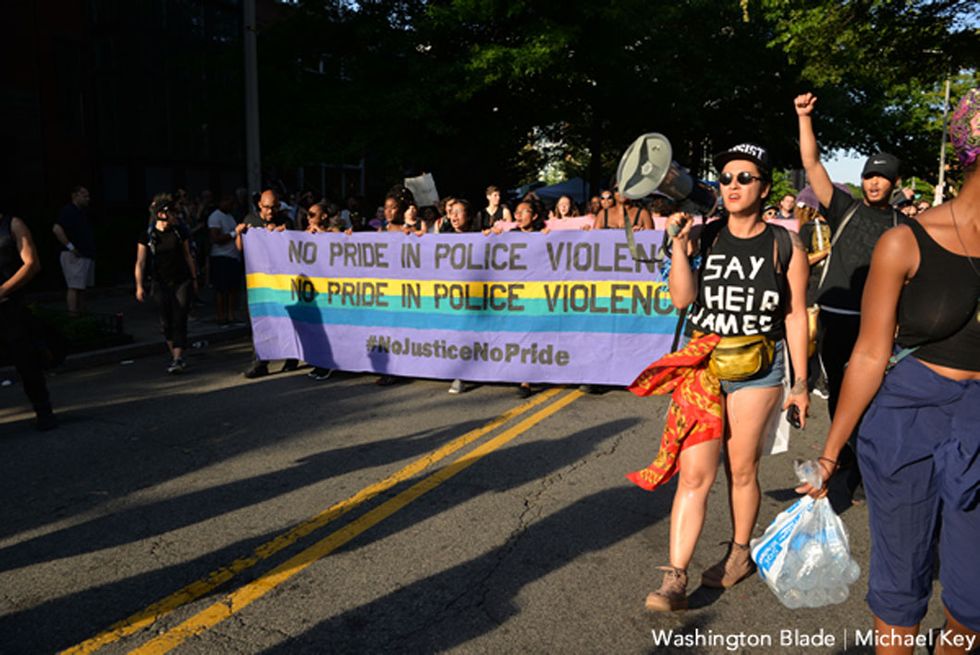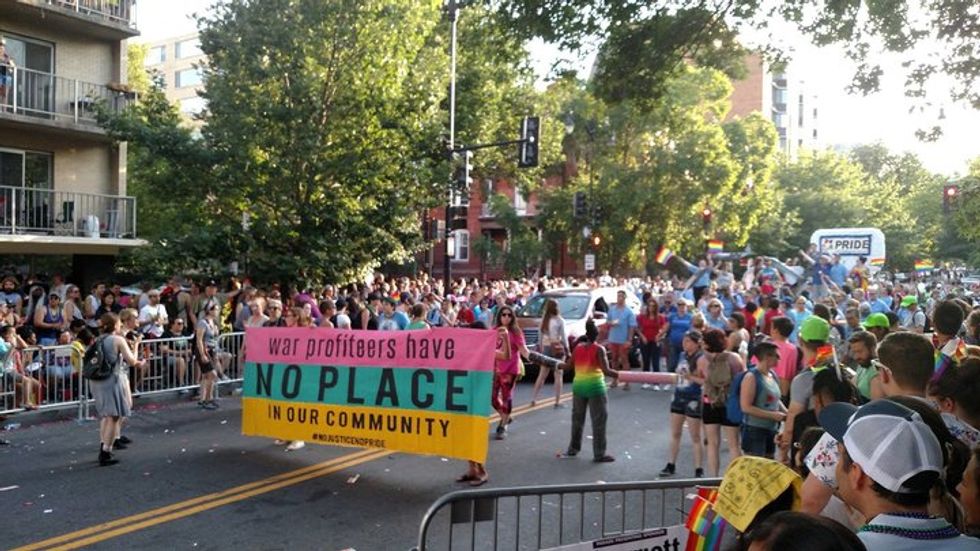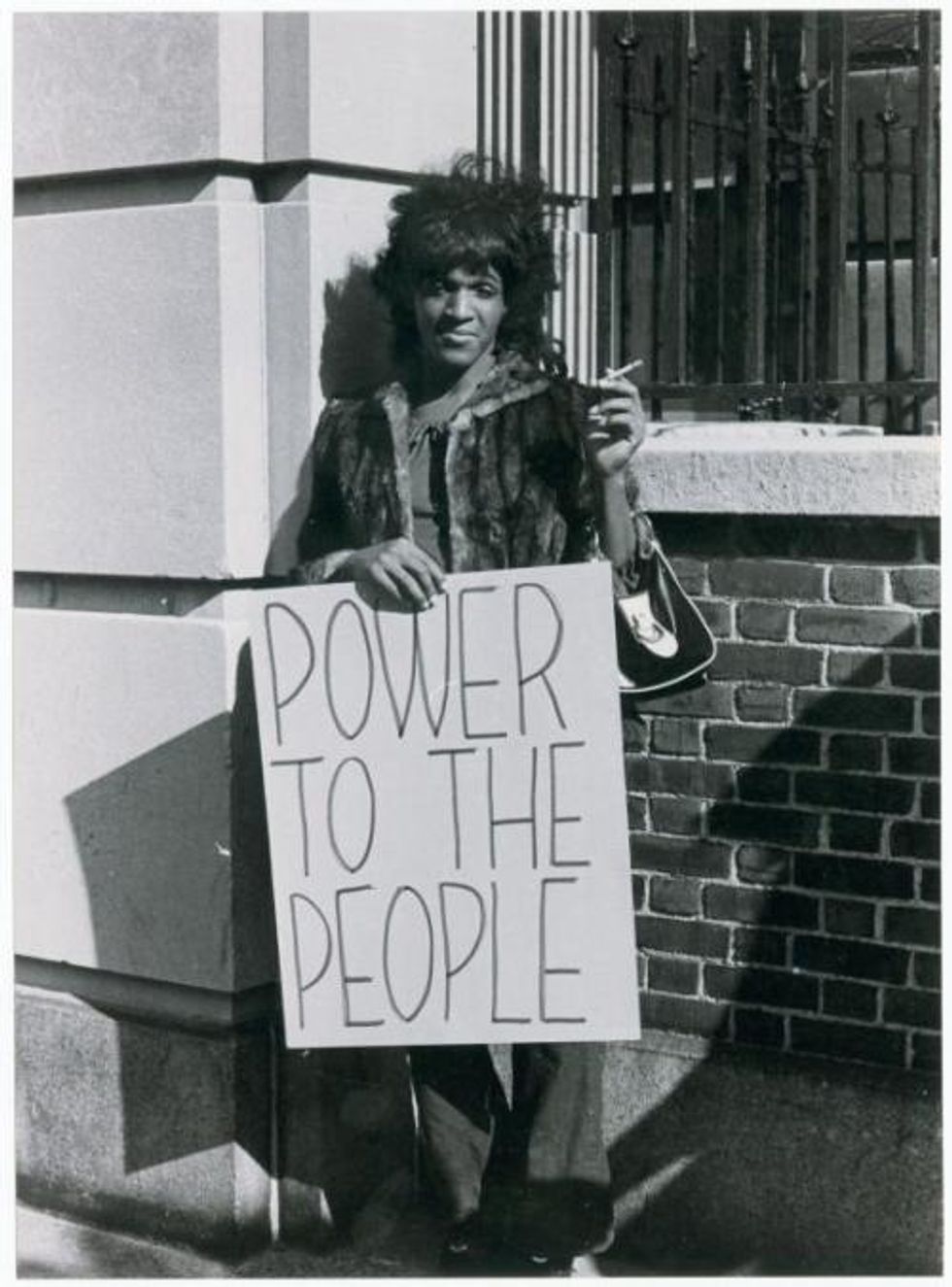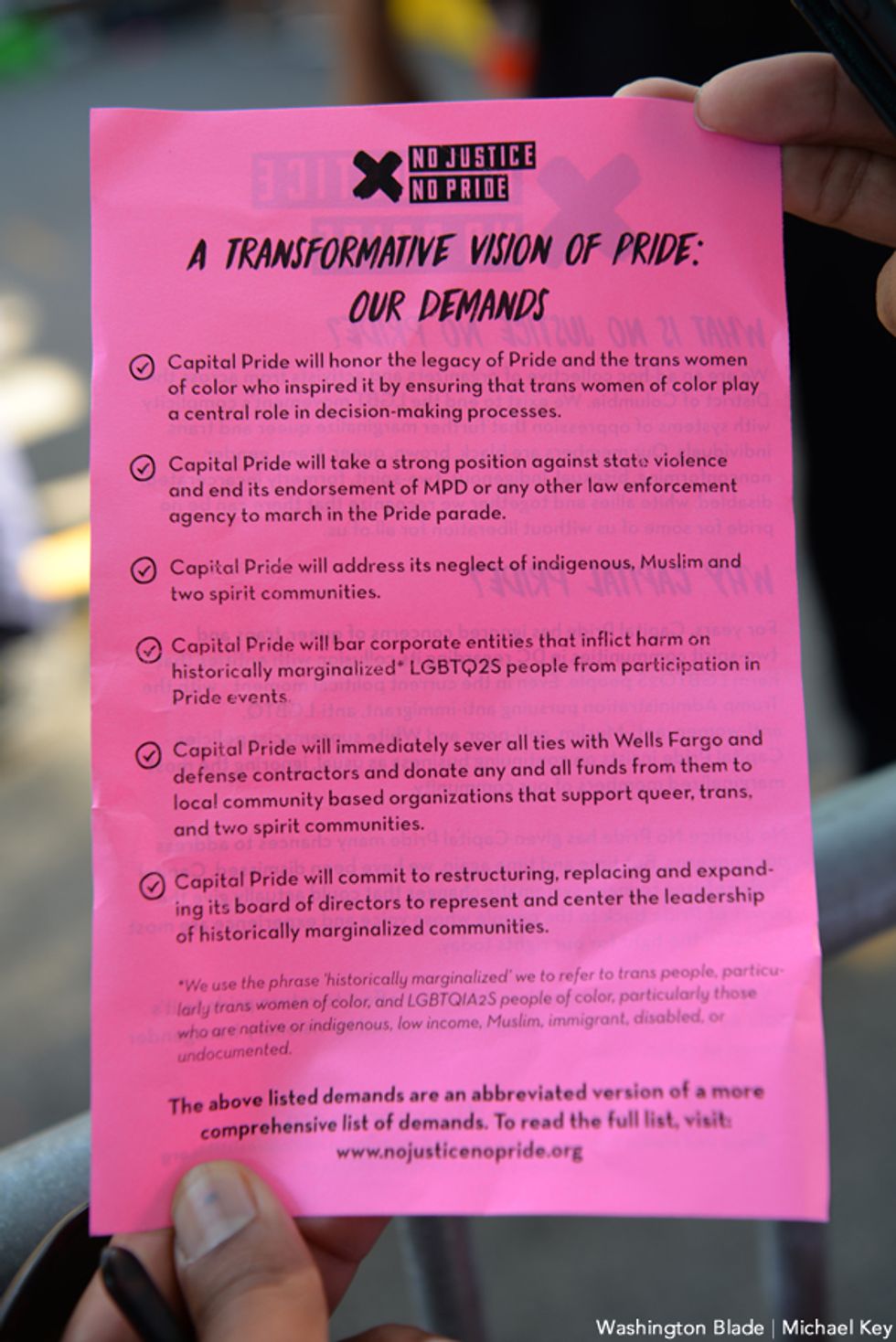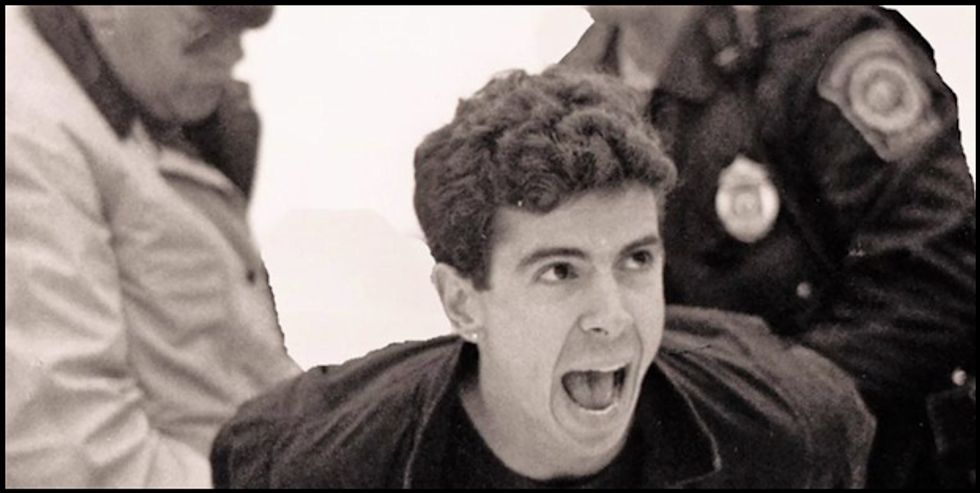As many are probably aware, the month of June is also known as Pride Month. It is a month-long acknowledgement and celebration of the LGBTQ+ communities, filled with Pride parades all over the world. In Portland, we had our Trans Pride parade this past Saturday, and Pride on Sunday. It's a fun and exciting event, filled with bright colors and plenty of people. In many ways, it's a big party seemingly filled with unity. However, the LGBTQ+ communities have our own problems that must be acknowledged.
There has been a long-time rift between folks who are also people of color and, namely, the white LGBTQ+ community. Much of this stems from the blatant ignoring of the unique struggles queer and transgender people of color face, and our erasure from the movement. This was made abundantly clear at Washington D.C.'s Capital Pride about a week ago, following the one-year anniversary of the Pulse Orlando shooting. Protesters halted the parade, blocking the floats for sponsors such as Wells Fargo and Lockheed Martin (a military industrial corporation), who are complicit in violence against minority communities. After Pride organizers decided against "[centering] marginalized voices within the LGBTQ2S community and [removing] Metropolitan police and corporations who profit from pipelines and war such as Wells Fargo and Lockheed Martin..." #NoJusticeNoPride protesters formed at least two blockades during the parade. With signs reading everything from "Wells Fargo = Native Genocide: Private Prisons & Immigrant Detention," to, "No Pride In: Prisons, Pipelines, Deportations," to, "No Pride in Police Violence," they brought the march to a complete stop in order to make their voices heard.
While the #NoJusticeNoPride protesters brought up important issues plaguing the overall queer community due to racism and xenophobia, many accused them of "ruining Pride." A common sentiment among the white LGBTQ+ community is that, "This is about LGBTQ+ issues, not race." As if those two things are separable for a large portion of queer folks... Over the years, as the face of queer folks have become those with privilege, many have forgotten how Pride even began.
The First Pride was a Riot
The first Pride march was not a parade, but a riot. Several nights of demonstrations actually, with the first object allegedly being thrown by Black drag queen and gay liberation activist: Marsha P. Johnson.
After a police raid on an LGBTQ+ bar in New York City, the Stonewall Inn, the communities fought back against the violence they were experiencing at the hands of law enforcement and the government. On June 28th, 1969 police arrived at the Stonewall Inn early in the morning to perform one of their many raids on gay bars. This involved seizing the alcohol, arresting women who were deemed to be inappropriately dressed, arresting drag queens and transgender women, police allegedly assaulting women in the bar, etc. When some were released outside Stonewall, many lingered. Soon enough, a crowd of more than 100 people had formed outside the bar. A little while after that, the violence broke out between the police and the crowd when the cops arrested three drag queens and a lesbian from the bar.
The first Pride was a direct response to police violence, led mostly by LGBTQ+ women of color. Yet now, some would like to continue seeing a police presence at today's marches as if law enforcement no longer harms marginalized communities. They may not target the entirety of the LGBTQ+ community the way they used to, but factions of it still suffer under heavier policing and abuse due to their gender, race, or class.
"The white LGBTQ community doesn't face the criminalization and policing that our community faces every day. Not just at Pride, but every day, everywhere we go. That's our life." -Jorge Gutierrez, Familia: Trans Queer Liberation Movement
Mass incarceration, police brutality, domestic violence, war, deportation, and other things that we recognize as issues in communities of color do not solely harm heterosexual and cisgender minorities. When the white LGBTQ+ community supports a heavy police presence at Pride, allows for corporations who have a history of violence in minority communities (here and abroad), and shuts down discussions regarding racism and classism, they are only proving these protesters' point. Sure, there is the argument that the police provide protection and these corporations provide financial support for the march, but for many, the police are a constant threat and these corporations aid in hurting or killing them.
Flashback to the AIDS pandemic, when many gay men were dying. As Peter Staley (ACT UP veteran and How to Survive a Plague documentary star) recalled, those diagnosed with AIDS and HIV were shunned and despised by their own community. They too were hurting, similarly to the way people of color are now, with little to no help from their LGBTQ+ peers. So, they fought back and many accused them of being divisive too. But, their civil disobedience did not stall clinical trials for AIDS/HIV treatments, it accelerated them. Their protests did not deter support or discussion, ultimately it sparked an important conversation and shone a light on the issue.
LGBTQ+ people of color are literally dying, and instead of being heard and receiving support from the rest of the communities we are often ostracized and made to fend for ourselves. Ever wonder why the need for events such as Latin Night at gay clubs? Hint: it's not just for the music. Approximately 13 transgender women (mostly Black trans women) have been murdered this year already, when 2016 counted 22 total. Almost 100 people of color were gunned down, 49 killed, at a gay club in Orlando on Latin Night -- most victims being Latinx and Puerto Rican. People of color are disproportionately targeted and killed by police, which happen to be the same people we have to walk alongside at Pride. Indigenous communities are poisoned by government-approved pipelines and banks that care little about the people they endanger. Immigrants who have fled war zones have seen the crates of military equipment left by Lockheed Martin. It isn't difficult to ask that certain groups that have proved to be harmful to a large portion of LGBTQ+ communities is kept away from Pride.
Many would like to claim that #NoJusticeNoPride protesters and their supporters are creating a divide in the LGBTQ+ community, but the divide is already there. The divide is not caused by those who bring attention to it, but by those who would rather turn a blind eye to the injustice and violence a portion of the community faces. The divide is not caused by those being marginalized and silenced, but by those who tell us to shut up so they can have a good time. Pride should be more than a parade we have once a year. It can be a chance to center the marginalized, to hear the voices of those who have been historically silenced and bring about real change within our own communities (so that maybe, we can start actually seeing an LGBTQ+ community).

